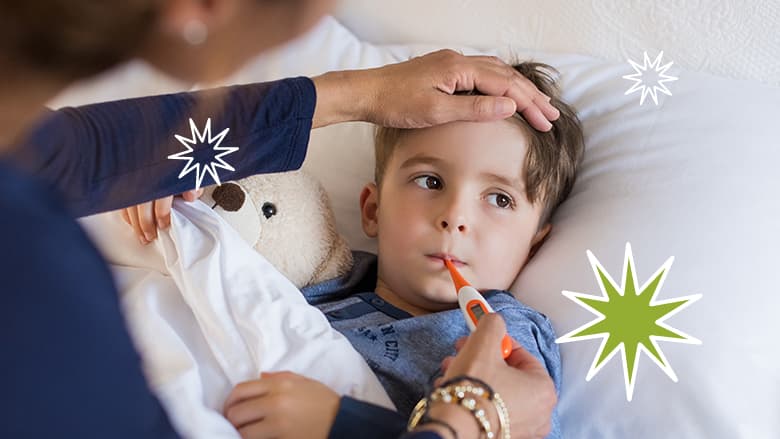Children Cancer Stories by Rukh Yusuf - Blog # 125
I am Rukh Yusuf, Clinical Pharmacist, also specialized in Total Parenteral Nutrition and Bone Marrow Transplant. I have been working in the Pediatric Oncology unit of a public hospital for several years. The mission of this blog is to bring to you the real-life stories of child patients suffering from cancer. Cancer is still a difficult disease to handle and treat. However, when it strikes the children, some so young that they cannot even speak, their agony is beyond expression and words. Let us pray especially for children suffering from cancer for early and complete remission. May Allah shower His Merciful Blessings upon them. Aameen.
September is recognized as Childhood Cancer Awareness Month (CCAM) every year by childhood cancer organizations around the world.
With a goal to increase awareness and raise funds for those affected by childhood cancer, the American Childhood Cancer Organization encourages everyone to Go Gold® during September in honor and in memory of kids with cancer!
Each year in the U.S., an estimated 15780, children aged 0-19 are diagnosed with cancer. Approximately 1 in 285 children in the U.S. will be diagnosed with cancer before their 20th birthday. Globally more than 300,000 children are diagnosed with cancer each year. Every 3 minutes, a family hears the devastating words that their child has been diagnosed with cancer.
Cancer remains the number #1 cause of death by disease for children in America. 20 % of children with cancer in the U.S. will not survive it.
More than 85% pediatric cancer cases occur in developing countries that use less than 5% of world resources. The rate will exceed 90% in the next two decades, due to the increase of youth population in favor of developing countries. Survival rate is as low as 30% in these countries.
Childhood cancer in developing countries presents unique challenges and concerns compared to more developed nations. While advances in medical science have significantly improved the diagnosis and treatment of childhood cancer worldwide, there are still disparities in access to care and outcomes between developed and developing countries. Here are some key factors to consider
1. Limited Access to Healthcare: Many developing countries lack the healthcare infrastructure, medical facilities, and skilled healthcare professionals needed to diagnose and treat childhood cancer effectively. This can result in delayed diagnoses and limited access to life-saving treatments.
2. Late Diagnosis: Childhood cancer is often diagnosed at later stages in developing countries due to factors such as limited awareness, poor access to healthcare, and cultural beliefs. Late diagnosis can reduce the chances of successful treatment and increase mortality rates.
3. Lack of Specialized Pediatric Oncology Centers: Developing countries may have limited or no specialized pediatric oncology centers equipped with the necessary expertise and resources to provide comprehensive cancer care to children.
4. Financial Barriers: The cost of cancer treatment can be a significant barrier for families in developing countries, where healthcare expenses are often paid out of pocket. Many families are unable to afford the high costs of cancer treatment, including chemotherapy, radiation therapy, and surgery.
5. Stigma and Cultural Beliefs: Cultural beliefs and misconceptions about cancer can lead to stigma and discrimination against children with cancer and their families. This can result in delayed treatment and isolation.
6. Limited Access to Medications: Access to essential cancer medications and chemotherapy drugs may be limited in developing countries due to cost, availability, and distribution challenges.
7. Malnutrition and Coexisting Infections: Malnutrition and coexisting infections can complicate cancer treatment and increase the risk of complications, especially in resource-constrained settings.
8. Limited Research and Data: There may be limited research and data on childhood cancer in many developing countries, making it difficult to understand the specific challenges and design targeted interventions.
Efforts to address childhood cancer in developing countries involve a multi-faceted approach, including.
Capacity Building: Building and strengthening the healthcare infrastructure and workforce to provide specialized pediatric oncology care.
Education and Awareness: Raising awareness about childhood cancer, its signs, and the importance of early diagnosis and treatment within communities.
Financial Support: Providing financial assistance and subsidies to families to ensure that they can afford cancer treatment for their children.
International collaboration: Collaborating with international organizations and developed countries to share expertise, resources, and knowledge in the field of pediatric oncology.
Research: Conducting research to understand the unique challenges faced by children with cancer in developing countries and developing strategies to address them.
Addressing childhood cancer in developing countries is a complex and ongoing effort that requires the involvement of governments, healthcare organizations, NGOs, and the global community to ensure that all children have access to timely and effective cancer care.
Lots of prayers for all sick children to recover quickly and never experience their illnesses again. May they lead happy and healthy lives once more. Aameen.







